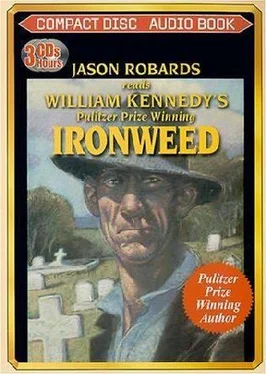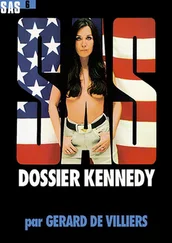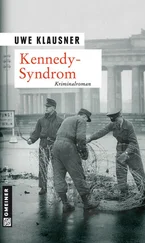William Kennedy - Ironweed
Здесь есть возможность читать онлайн «William Kennedy - Ironweed» весь текст электронной книги совершенно бесплатно (целиком полную версию без сокращений). В некоторых случаях можно слушать аудио, скачать через торрент в формате fb2 и присутствует краткое содержание. Жанр: Современная проза, на английском языке. Описание произведения, (предисловие) а так же отзывы посетителей доступны на портале библиотеки ЛибКат.
- Название:Ironweed
- Автор:
- Жанр:
- Год:неизвестен
- ISBN:нет данных
- Рейтинг книги:3 / 5. Голосов: 1
-
Избранное:Добавить в избранное
- Отзывы:
-
Ваша оценка:
- 60
- 1
- 2
- 3
- 4
- 5
Ironweed: краткое содержание, описание и аннотация
Предлагаем к чтению аннотацию, описание, краткое содержание или предисловие (зависит от того, что написал сам автор книги «Ironweed»). Если вы не нашли необходимую информацию о книге — напишите в комментариях, мы постараемся отыскать её.
Ironweed — читать онлайн бесплатно полную книгу (весь текст) целиком
Ниже представлен текст книги, разбитый по страницам. Система сохранения места последней прочитанной страницы, позволяет с удобством читать онлайн бесплатно книгу «Ironweed», без необходимости каждый раз заново искать на чём Вы остановились. Поставьте закладку, и сможете в любой момент перейти на страницу, на которой закончили чтение.
Интервал:
Закладка:
Below, in the yard, Aldo Campione, Fiddler Quain, Harold Allen, and Rowdy Dick Doolan were erecting a wooden structure that Francis was already able to recognize as bleachers.
He stepped back into the tub, soaped the long-handled brush, raised his left foot out of the water, scrubbed it clean, raised the right foot, scrubbed that.
o o o
Francis, that 1916 dude, came down the stairs in bow tie, white-on-white shirt, black laceless oxfords with a spit shine on them, the gray herringbone with lapels twentytwo years too narrow, with black silk socks and white silk boxer shorts, with his skin free of dirt everywhere, his hair washed twice, his fingernails cleaned, his leftover teeth brushed and the toothbrush washed with soap and dried and rehung, with no whiskers anymore, none, and his hair combed and rubbed with a dab of Vaseline so it’d stay in place, with a spring in his gait and a smile on his face; this Francis dude came down those stairs, yes, and stunned his family with his resurrectible good looks and stylish potential, and took their stares as applause.
And dance music rose in his brain.
“Holy Christ,” said Billy.
“My oh my,” said Annie.
“You look different,” Daniel said.
“I kinda needed a sprucin’,” Francis said. “Funny duds but I guess they’ll do.”
They all pulled back then, even Daniel, aware they should not dwell on the transformation, for it made Francis’s previous condition so lowly, so awful.
“Gotta dump these rags,” he said, and he lifted his bundle, tied with the arms of his old coat.
“Danny’ll take them,” Annie said. “Put them in the cellar,” she told the boy.
Francis sat down on a bench in the breakfast nook, across the table from Billy. Annie had spread the clips and photos on the table and he and Billy looked them over. Among the clips Francis found a yellowed envelope postmarked June 2, 1910, and addressed to Mr. Francis Phelan, do Toronto Baseball Club, The Palmer House, Toronto, Ont. He opened it and read the letter inside, then pocketed it. Dinner advanced as Daniel and Annie peeled the potatoes at the sink. Billy, his hair combed slick, half a dude himself with open-collared starched white shirt, creased trousers, and pointy black shoes, was drinking from a quart bottle of Dobler beer and reading a clipping.
“I read these once,” Billy said. “I never really knew how good you were. I heard stories and then one night downtown I heard a guy talking about you and he was ravin’ that you were top-notch and I never knew just how good. I knew this stuff was there. I seen it when we first moved here, so I went up and looked. You were really a hell of a ball player.”
“Not bad,” Francis said. “Coulda been worse.”
“These sportswriters liked you.”
“I did crazy things. I was good copy for them. And I had energy. Everybody likes energy.”
Billy offered Francis a glass of beer but Francis declined and took, instead, from Billy’s pack, a Camel cigarette; and then he perused the clips that told of him stealing the show with his fielding, or going four-for-four and driving in the winning run, or getting himself in trouble: such as the day he held the runner on third by the belt, an old John McGraw trick, and when a fly ball was hit, the runner got ready to tag and head home after the catch but found he could not move and turned and screamed at Francis in protest, at which point Francis let go of the belt and the runner ran, but the throw arrived first and he was out at home.
Nifty.
But Francis was thrown out of the game.
“Would you like to go out and look at the yard?” Annie said, suddenly beside Francis.
“Sure. See the dog.”
“It’s too bad the flowers are gone. We had so many flowers this year. Dahlias and snapdragons and pansies and asters. The asters lasted the longest.”
“You still got them geraniums right here.”
Annie nodded and put on her sweater and the two of them went out onto the back porch. The air was chilly and the light fading. She closed the door behind them and patted the dog, which barked twice at Francis and then accepted his presence. Annie went down the five steps to the yard, Francis and the dog following.
“Do you have a place to stay tonight, Fran?”
“Sure. Always got a place to stay.”
“Do you want to come home permanent?” she asked, not looking at him, walking a few steps ahead toward the fence. “Is that why you’ve come to see us?”
“Nah, not much chance of that. I’d never fit in.”
“I thought you might’ve had that in mind.”
“I thought of it, I admit that. But I see it couldn’t work, not after all these years.”
“It’d take some doing, I know that.”
“Take more than that.”
“Stranger things have happened.”
“Yeah? Name one.”
“You going to the cemetery and talking to Gerald. I think maybe that’s the strangest thing I ever heard in all my days.”
“Wasn’t strange. I just went and stood there and told him a bunch of stuff. It’s nice where he is. It’s pretty.”
“That’s the family plot.”
“I know.”
“There’s a grave there for you, right at the stone, and one for me, and two for the children next to that if they need them. Peg’ll have her own plot with George and the boy, I imagine.”
“When did you do all that?” Francis asked.
“Oh years ago. I don’t remember.”
“You bought me a grave after I run off.”
“I bought it for the family. You’re part of the family.”
“There was long times I didn’t think so.”
“Peg is very bitter about you staying away. I was too, for years and years, but that’s all done with. I don’t know why I’m not bitter anymore. I really don’t. I called Peg and told her to get the cranberries and that you were here.”
“Me and the cranberries. Easin’ the shock some.”
“I suppose.”
“I’ll move along, then. I don’t want no fights, rile up the family.”
“Nonsense. Stop it. You just talk to her. You’ve got to talk to her.”
“I can’t say nothin’ that means anything. I couldn’t say a straight word to you.”
“I know what you said and what you didn’t say. I know it’s hard what you’re doing.”
“It’s a bunch of nothin’. I don’t know why I do anything in this goddamn life.”
“You did something good coming home. It’s something Danny’ll always know about. And Billy. He was so glad to be able to help you, even though he’d never say it.”
“He got a bum out of jail.”
“You’re so mean to yourself, Francis.”
“Hell, I’m mean to everybody and everything.”
The bleachers were all up, and men were filing silently into them and sitting down, right here in Annie’s backyard, in front of God and the dog and all: Bill Corbin, who ran for sheriff in the nineties and got beat and turned Republican, and Perry Marsolais, who inherited a fortune from his mother and drank it up and ended up raking leaves for the city, and Iron Joe himself with his big mustache and big belly and big ruby stickpin, and Spiff Dwyer in his nifty pinched fedora, and young George Quinn and young Martin Daugherty, the batboys, and Martin’s grandfather Emmett Daugherty, the wild Fenian who talked so fierce and splendid and put the radical light in Francis’s eye with his stories of how moneymen used workers to get rich and treated the Irish like pigdog paddyniggers, and Patsy McCall, who grew up to run the city and was carrying his ball glove in his left hand, and some men Francis did not know even in 1899, for they were only hangers-on at the saloon, men who followed the doings of Iron Joe’s Wheelbarrow Boys, and who came to the beer picnic this day to celebrate the Boys’ winning the Albany-Troy League pennant.
Читать дальшеИнтервал:
Закладка:
Похожие книги на «Ironweed»
Представляем Вашему вниманию похожие книги на «Ironweed» списком для выбора. Мы отобрали схожую по названию и смыслу литературу в надежде предоставить читателям больше вариантов отыскать новые, интересные, ещё непрочитанные произведения.
Обсуждение, отзывы о книге «Ironweed» и просто собственные мнения читателей. Оставьте ваши комментарии, напишите, что Вы думаете о произведении, его смысле или главных героях. Укажите что конкретно понравилось, а что нет, и почему Вы так считаете.












